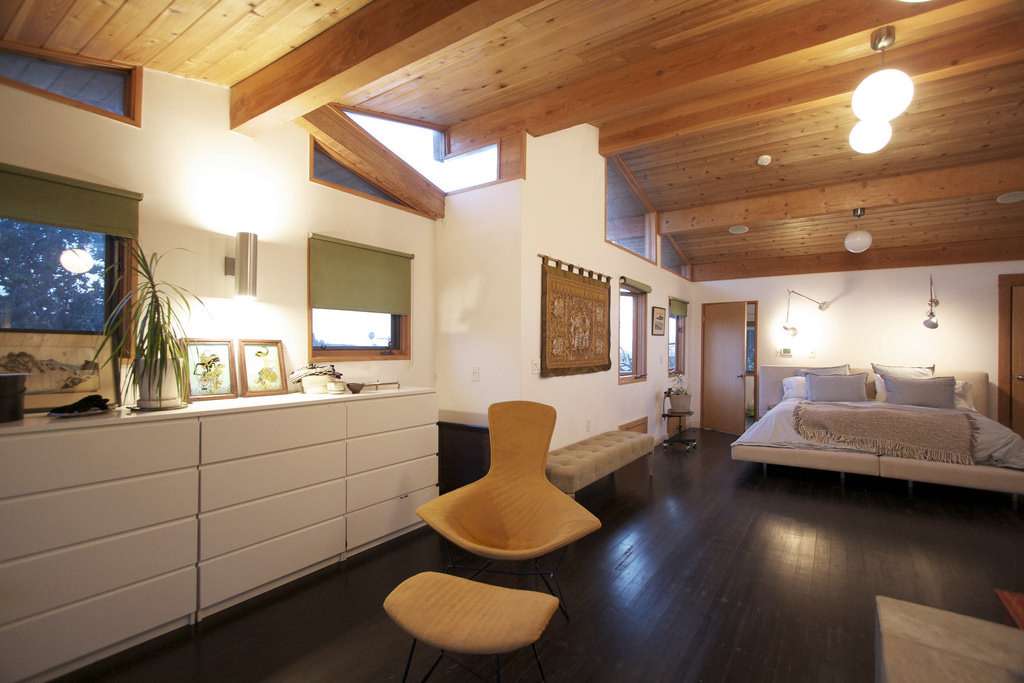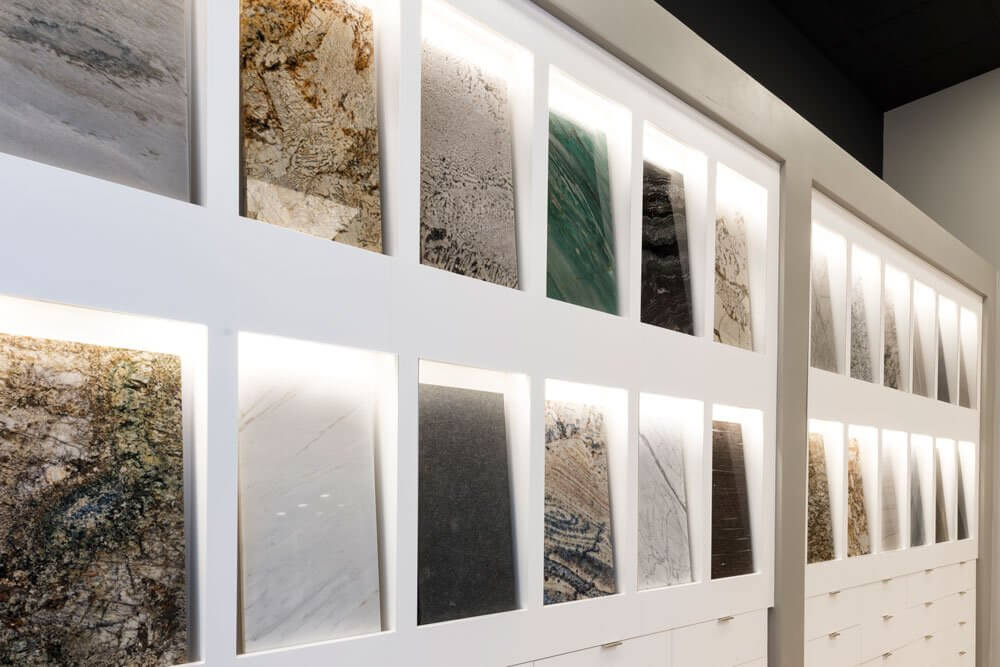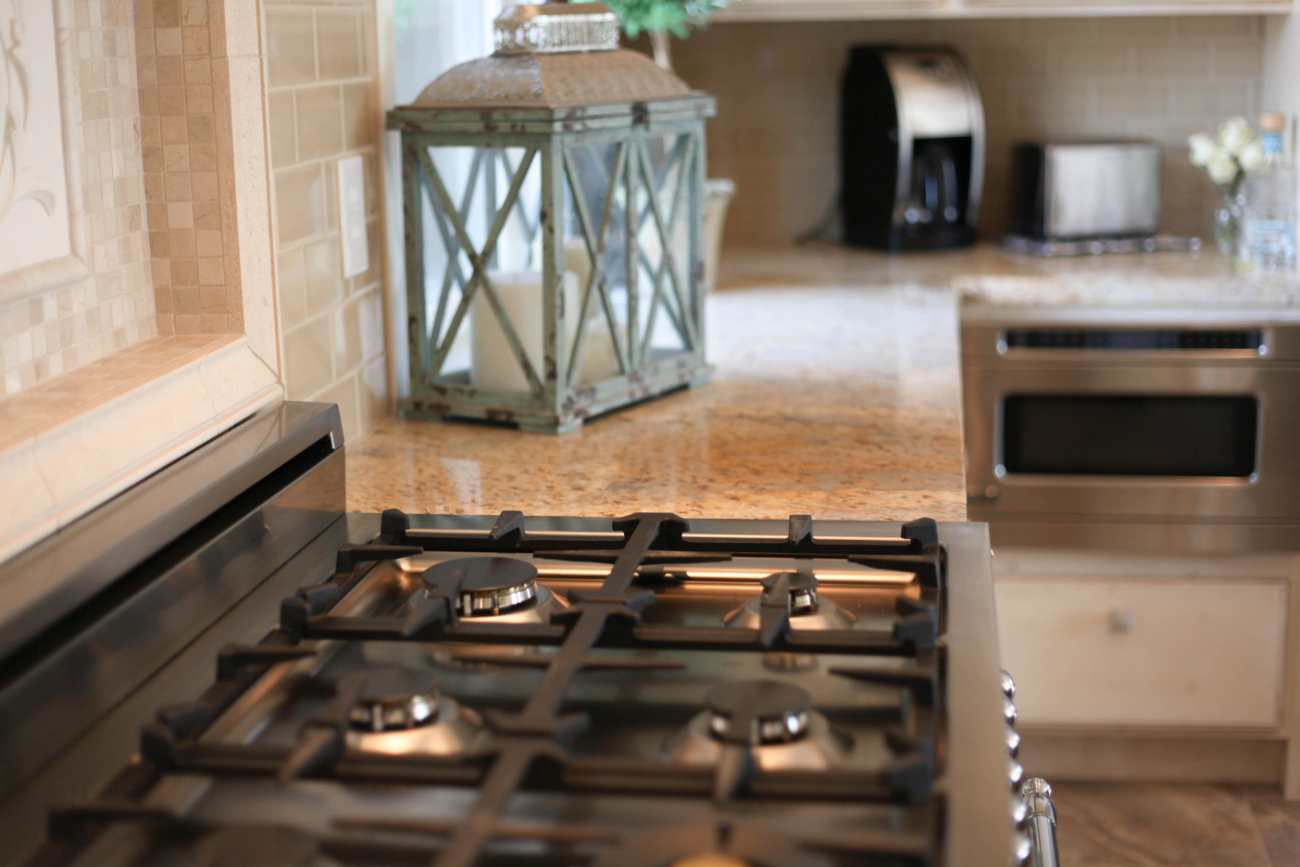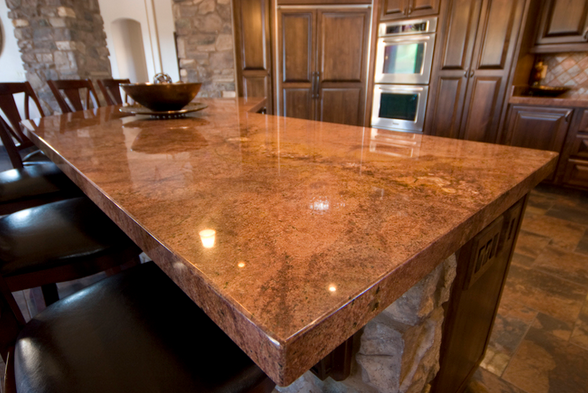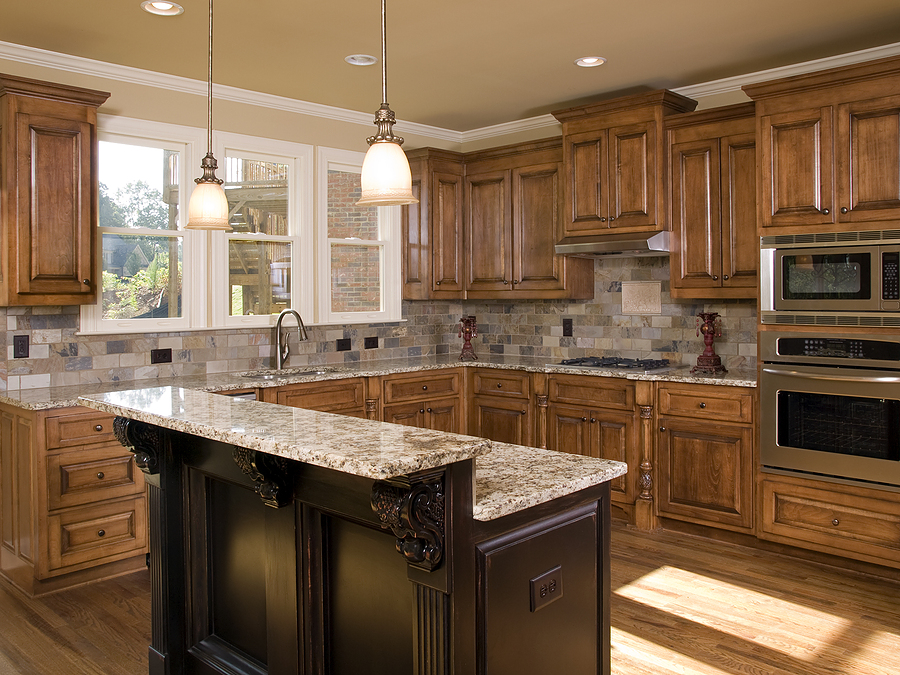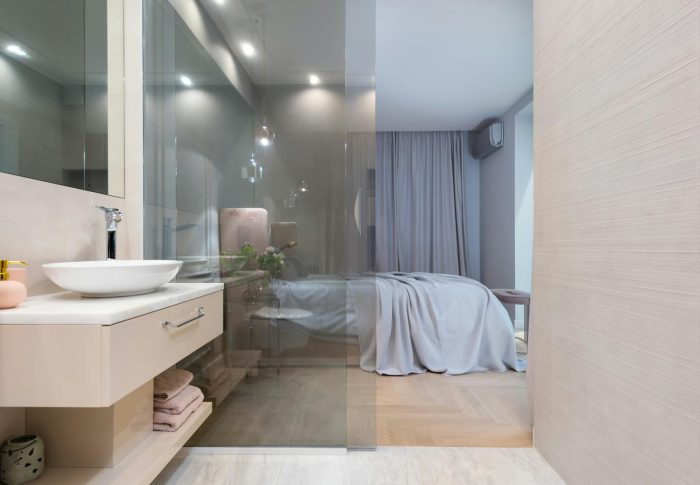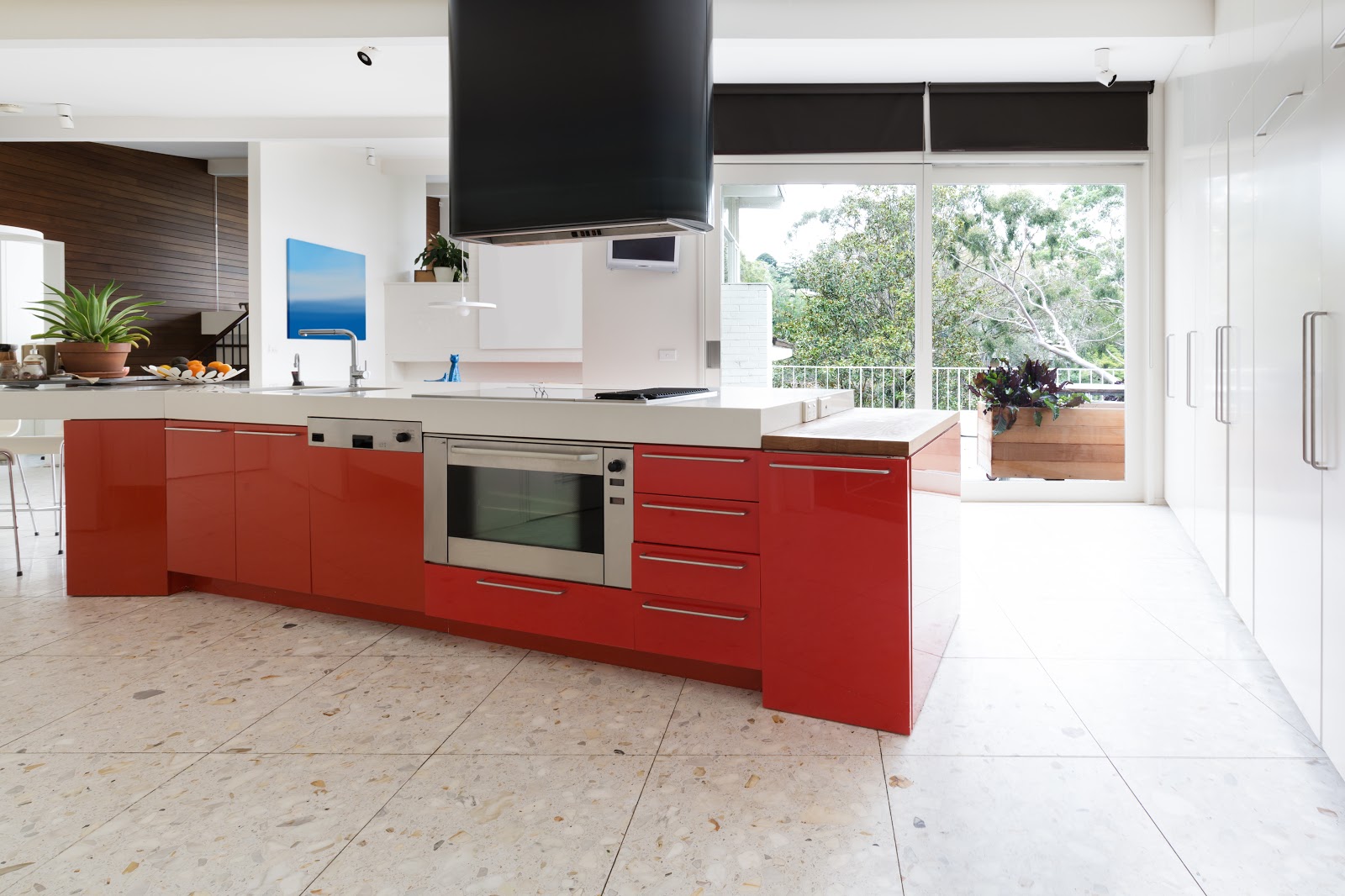Whether used in the kitchen, bathroom, or anywhere else in your home, countertops play a key role in the overall style of a room. In addition, countertops may be subjected to a great deal of wear and tear over time, so it’s important to choose a product that will not only complement your home’s aesthetic, but will also offer long-lasting durability.
With so many types of countertops on the market—from natural stone to engineered materials to alternative choices, such as butcher block, stainless steel, or recycled glass—it can feel overwhelming trying to select the best option for your home. Here are answers to some FAQs about countertops to help guide you in your search:
Which is more durable: granite or quartz?
Over the past several years, quartz and granite have been two of the most popular options for countertops, with each material seeming to have ardent fans. While granite is a timeless choice that is highly durable and resistant to heat and most other forms of wear and tear, it carries one significant drawback: it tends to be porous, which means that spills could cause permanent staining if not cleaned up immediately.
Quartz, on the other hand, is considered to be nearly indestructible. It is harder than granite and is not as porous, making it resistant to staining and easy to keep clean and free of bacteria. However, the greatest threat to quartz is excessive heat, so it’s essential to use heating pads when placing hot objects on the countertops.
Are quartz countertops natural or manmade?
Since quartz is a naturally occurring mineral, many people assume that quartz countertops are 100 percent natural. In reality, however, they typically contain about 90-95 percent natural materials—including ground quartz, as well as crushed granite, marble, and other stone—and 5-10 percent polymeric or cement-based binder.
While quartz countertops may not be fully natural like granite or marble, they offer many benefits that have fueled their popularity. In addition to their durability, quartz countertops have a beautiful, natural stone-like look with numerous options for customization, require minimal maintenance, and are considered to be more eco-friendly than their 100 percent natural counterparts.
What are the best alternatives to granite or quartz?
While granite and quartz have seemed to dominate the countertop market in recent years, there are several other excellent options to consider. A few of the top choices include:
- With a price point comparable to most types of natural stone, one of the key benefits of concrete is that it can be easily customized to suit different aesthetics. Through the addition of pigments and aggregates (such as sand or limestone), concrete countertops can be styled to have certain colors or textures, and different finishes can be used to complete the look. However, they tend to need more maintenance and are prone to water discoloration or damage from spills; periodic waxing can help protect them.
- Wood countertops, such as butcher block, can bring a timeless look and a sense of warmth and character to any kitchen. Priced similarly to granite, wood countertops are easy to clean, but will require regular sealing with mineral oil or beeswax to prevent water damage.
- Stainless steel. There’s a reason why stainless steel is the most common countertop material used in commercial kitchens—it is highly durable, non-porous, and resistant to heat. Stainless steel, which can also bring a modern aesthetic to your kitchen, is available in various grades to suit different budgets.
- Recycled glass. A more recent trend, recycled glass countertops are a great way to add a splash of color and a unique look to your kitchen. They are made in a similar way as quartz countertops: crushed, post-consumer recycled glass chips are blended into a cement- or resin-based binder. Some varieties are solid glass, made from recycled glass pieces that have been crushed and melted. These countertops are among the most environmentally friendly options, and tend to be non-porous and resistant to heat and stains.
- Solid surface. Often associated with the brand names Corian and Formica, solid surface countertops are manmade from mineral dust and plastic resin. They’re available in a variety of colors and styles, and have a seamless look that can mimic stone. However, solid surface countertops tend to vulnerable to heat damage and scratches.
- As the most budget-friendly choice for countertops, laminate is available in several custom colors and designs, and can even mimic the look of marble or granite. While laminate is very low maintenance and easy to clean, it can be severely damaged by heat.
What is the best material for bathroom countertops?
As with kitchen counters, the best countertops for your bathroom will depend on your budget, style, and various other factors. Bathroom countertops are generally subjected to much less wear and tear than those in the kitchen, so it may not be as important to focus on choosing a durable material. Therefore, many homeowners opt for more affordable materials, such as laminate and ceramic or porcelain tile. If you’re aiming for a more luxurious look, options such as quartz, recycled glass, or granite and other types of natural stone will work as well in the bathroom as they do in the kitchen.
These are just a few of the questions that homeowners typically have when deciding on the best countertops for their kitchens and bathrooms. At Primera, we offer a vast selection of both natural stone and engineered countertops from industry-leading brands, and our team works with home builders, designers, and buyers in conjunction with their builders to provide countertop solutions that fit any style, budget, or preferences.
Call us today at (866) 752-7336 to learn more!
